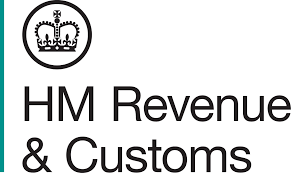IR35 has been in the news a fair amount recently, mainly due to the anticipated changes which the government are due to bring in, effective from 6 April 2020.
What is IR35?
These are rules which may apply where a worker provides their services to an end client through the use of an intermediary, for example a personal service company (PSC) or through an agency. The idea behind the rules is to treat the worker as if they were an employee and pay roughly the same amount of Tax and National Insurance Contributions that an employee would pay in the same situation. The rules apply in situations where it would be deemed that they would be classed as an employee, had they been contracted to work for the end client directly.
What is changing?
IR35 regulations first came into effect in April 2000 however the rules only really garnered traction in April 2017 when the rules were applied to public sector organisations. Several high profile cases have been in the news, some involving the BBC and some of their news presenters. The regulations are now being expanded and IR35 will apply to the private sector for medium and large-sized clients from 6 April 2020. To be classed as a medium or large organisation, they will meet at least 2 of the following 3 conditions:
- Annual turnover of £10.2 million or more.
- Balance sheet total of £5.1 million or more.
- 50 employees or more.
What does this mean for me as a contractor?
If you are contracting to a private sector client either through an agency or your own PSC, and your end client meets the conditions of being either medium or large-sized, IR35 regulations may apply. It is the responsibility of the end client to determine the appropriate employment status of its workers. Your client should provide you with a status declaration statement which confirms their determination of your employment status and the reasons for their decision. Every arrangement will be individual to that worker so your arrangement may be different to another worker contracting for the same client. The determination will consider various factors, such as control over someone’s work, obligation whether to accept work, use of substitutes to provide work, project allocations to work on, how your work is carried out, working hours, email address, access to client premises, just to name a few. If the rules apply, your client will pay you the ‘deemed employment payment’ which will deduct for items like Tax, National Insurance and general expenses. You will be taxed as if you were an employee, however you would not be entitled to some of the same benefits that employees receive, like Holiday or Sick pay.
What are my options if IR35 rules have been deemed to apply to me?
Once you have received your notification, you are able to appeal their determination if you disagree with this. It may be worthwhile seeking expert advice on employment law to build a case for your argument. If you operate through your PSC and only provide work to clients where the IR35 rules will apply, it will be worth considering whether operating through your PSC is the best method for you. You would not be expected to pay corporation tax on top of the tax you have already paid for those invoices in which IR35 rules have been applied, so it may not be worth operating your PSC due to the extra costs involved in running it. You may work for multiple clients where IR35 rules apply for some clients, but not others.
Recent developments
HMRC have recently announced they plan to make a minor amendment to the rules and it is expected that the rules will only apply to payments made to PSCs on or after 6 April 2020, so does not affect payments that may have already been made to you. It is also expected that HMRC will not adopt a ‘heavy-handed’ approach for the first year, to allow affected businesses and workers sufficient time to adjust to the changes. Despite this, there have been several larger private sector organisations that have already adopted a policy of no longer hiring contractors, and there may be more to come.
Author: Mark Horsfield, Business Services Assistant Manager, Plus Accounting
Any views or opinions represented in this blog are personal, belong solely to the blog owner and do not represent those of Plus Accounting. All content provided on this blog is for informational purposes only. The owner of this blog makes no representations as to the accuracy or completeness of any information on this site or found by following any link on this site





